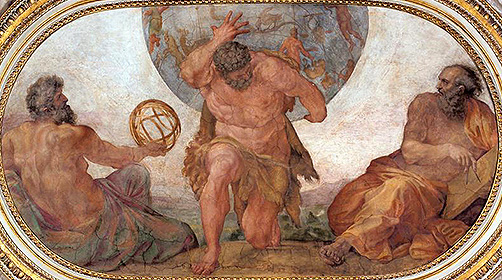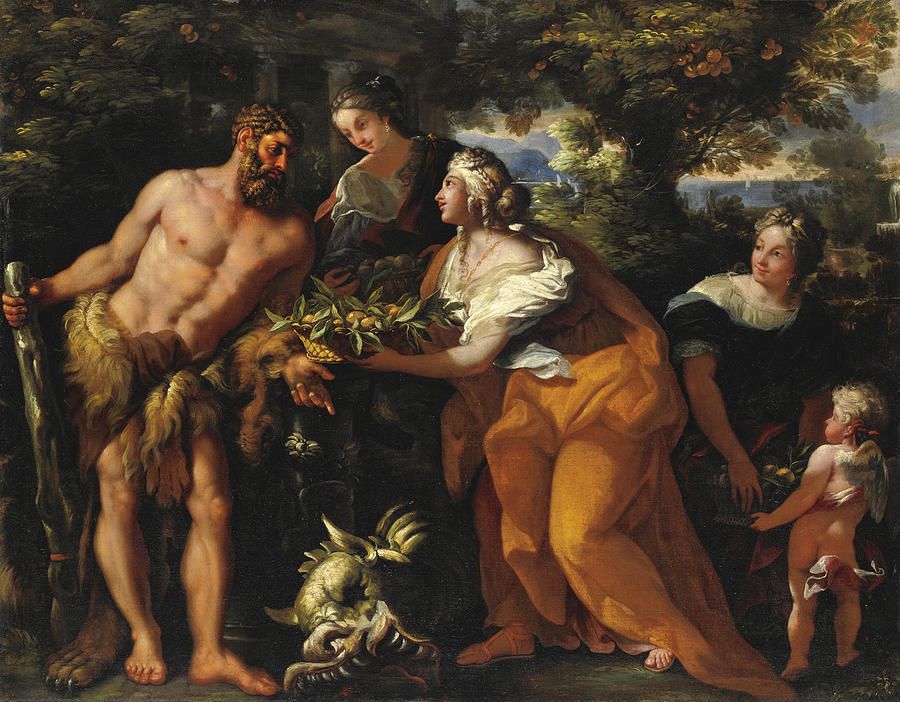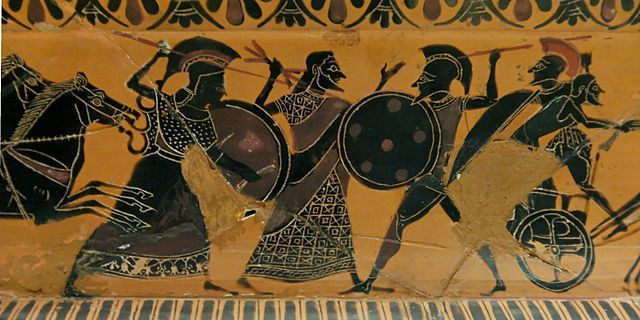Hercules and the Apples of the Hesperides
The Mythical Feat of the Apples of Eternal Youth

"Thus, Hercules embarked on his eleventh labor, which was the most difficult and dangerous of the previous ones. In a distant land, there was a garden with a large apple tree that bore golden apples. This garden was home to the Hesperides, nymphs who alone had the right to pick the golden apples. To protect this unique tree, a hundred-headed serpent continuously guarded its trunk, day and night.
As Hercules proceeded toward the land of the Hesperides, he reached the Caucasus. On this mountain, Zeus had chained Prometheus as punishment for stealing fire from the gods and giving it to humans. As unending torment, a huge eagle would come daily and eat his liver, which would regenerate overnight. Hercules was moved by Prometheus's suffering and, with an arrow, killed the eagle, thus freeing the benefactor of humanity from his chains. Prometheus, grateful for his salvation, asked Hercules about his destination. Hercules explained that he intended to steal the apples of the Hesperides.
"You won't succeed, Hercules," Prometheus told him. "It is very difficult."
"Why? What makes it so difficult?" asked Hercules.
"If you enter the garden of the Hesperides, which belongs to Hera, you will die like any mortal," Prometheus replied. "Listen to what you can do. Near the garden of the Hesperides, there is Atlas, who has the duty from the gods to hold up the sky to prevent it from touching the earth. Ask him to take his place for a while and hold up the sky yourself. Ask Atlas to enter, since he is immortal, the garden of the Hesperides to steal the golden apples."
Hercules thanked Prometheus for his advice and after several days reached a tall mountain, where at its peak stood Atlas, holding the sky on his shoulders.
"What are you doing here, mortal?" Atlas asked him.
Hercules explained and begged him to help him obtain the apples of the Hesperides.

"I will do you the favor then," Atlas replied. "Come, take my place, and soon I will bring you the golden apples." So it happened. Hercules took Atlas's place, bearing the immense weight with great difficulty, and Atlas departed for the garden of the Hesperides.
It wasn't long before he returned with the large golden apples, having killed the hundred-headed serpent.
"Thank you," said Hercules. "Now, come, take your place."
However, Atlas shook his head with a sly smile.
"Don't worry about the apples," Atlas replied to Hercules. "I will give them to Eurystheus, and when I'm done, I will return." Indeed, Atlas, having found someone to relieve him of this arduous duty, had no intention of returning. But if Atlas was cunning, Hercules was even more clever.
"Fine, I will stay and hold the sky," he said, "but since I am not used to it and it presses on my head, let me find a soft pillow and I will return." Atlas believed him. Thus, with his head supporting the sky, Hercules took the golden apples and walked away laughing.
He delivered the apples to Eurystheus, who, fearing to keep them, offered them to the goddess Athena.
During his journey to the garden of the Hesperides, Hercules also accomplished other secondary feats:
He killed the giant Cycnus, who challenged him to a duel. His father was Ares, who tried to help his son. However, he too was wounded by Hercules.

Additionally, he was captured by King Busiris during his stay in Egypt, but managed to kill him.
Moreover, he killed the king of Ethiopia (or Arabia) Emathion and entrusted the throne to his brother, Memnon. Indeed, Memnon would later participate in the Trojan War on the side of the Trojans."